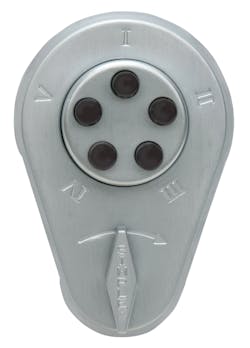Tech Tips: Stand-Alone Lock Programming Guide
Years ago, Locksmith Ledger produced a programming guide for stand-alone locks. We have updated our guide to include single-door controllers. This technical library is intended to provide a concise index of the programming steps required for these devices. This guide could be helpful if you’re:
- Developing an overview of the product category.
- Preparing a proposal to install a stand-alone lock or single-door controller.
- Being asked on-site to troubleshoot or reprogram an already-installed system.
Most customers require an expert to guide them through the selection, maintenance and programming of their security equipment, and you should be that expert. The stand-alone lock category isn’t a one-size-fits-all situation, and the more thoroughly you understand the products and technology, the better you will be able to service your accounts.
Find Answers
Here are a few things to consider:
- What’s the right lock for the door? Is the door an exterior door, exposed to the elements, vandalism and attempted break-ins? Is this a fire door or emergency exit, and is the door properly provisioned and working?
- Is there an existing mechanism in the door, such as a mortise lock, deadlatch or exit device? Stand-alone locks aren’t always the best choice when dealing with existing locking hardware.
- Is your solution code-compliant?
- Does the lock’s attributes meet the security requirements based on risk assessment, the nature of the business and the expectations of the client? The risk assessment can be as casual as your own impressions based on your knowledge of the neighborhood and criminal activity in the area. Enhanced locks and security might be required by the customer’s insurer. Interior doors might protect inventory, narcotics, computers or patients. There are special considerations for each scenario.
- Is the product from a reputable vendor? Ever go to a site and think, “They don’t make ’em like this anymore?” A durable, well-built product from a reliable manufacturer might be a candidate for repair and reprogramming, rather than replacement.
- Is the client able to take on the responsibilities necessary to program and make occasional adjustments, such as adding or deleting a PIN or credential?
Some older devices might have been purchased in a home center or online, and longevity never was a feature designed into the product. Maybe it was installed poorly, so you can’t disassemble and service it without damaging it.
It’s almost guaranteed that the installer didn’t leave any notes behind, and no technical resources are online. You might have to make an investment in money or time to service the product. Besides specific firmware and software, many legacy products require unique cables and programming tools that you might not be able to locate or you might not want to acquire.
Some customers are fixated on certain issues. They hate battery-operated equipment, or they feel a misplaced sense of loyalty to a product they already own. Some customers don’t want some of the bells and whistles we “techies” thrive on that are used to differentiate and sell new equipment.
I try to standardize with products for which I’m assured I will have access to support and resources and are scalable, so in the event the client requires expansion or enhancement of the security management, the product will lend itself to bootstrapping.
Certain projects never will expand, and certain projects eventually could grow into many doors, one door at a time, installed by you. Choose wisely.
Programming Guides
The following is a partial listing of links to programming instructions for stand-alone locks and stand-alone door control systems, listed alphabetically by company. Email Emily Pike at [email protected] if you have information to add.
Alarm Lock AirAccess for Locksmith Professionals
Alarm Lock Instruction Manuals
Corbin Russwin installation instructions
dormakaba downloads (including various E-Plex models)
Paxton PaxLock Pro and additional Paxton products
SARGENT Passport 1000 Mortise Lock
SARGENT Passport 1000 Cylindrical Lock
Schlage stand-alone locks (includes CO Series, AD Series, NDE)
SDC E75, 76, 77 Series Programming Guide
Distributor Resource Sites
Distributor Resources
Just about every lock manufacturer and many distributors post helpful installation videos on their YouTube channels. (Search by name on YouTube.) Distributors do a great job of posting links to instructions on the brands they carry.
Access Hardware has tutorials, videos and manufacturer links at www.accesshardware.com/learn/
Banner Solutions posts manufacturer literature at www.bannersolutions.com/Resources
IDN-Inc. lists YouTube channels along with manufacturer information at https://hardware.idn-inc.com/manufacturer/resources/manufacturer-websites-and-product-support/
IML Security and Supply has an extensive collection of instructions and templates at www.imlss.com/resources.html.
Top Notch also has extensive listings by manufacturer: www.topnotchinc.com/Home/Manufacturers
Tim O'Leary
Tim O'Leary is a security consultant, trainer and technician who has also been writing articles on all areas of locksmithing & physical security for many years.






